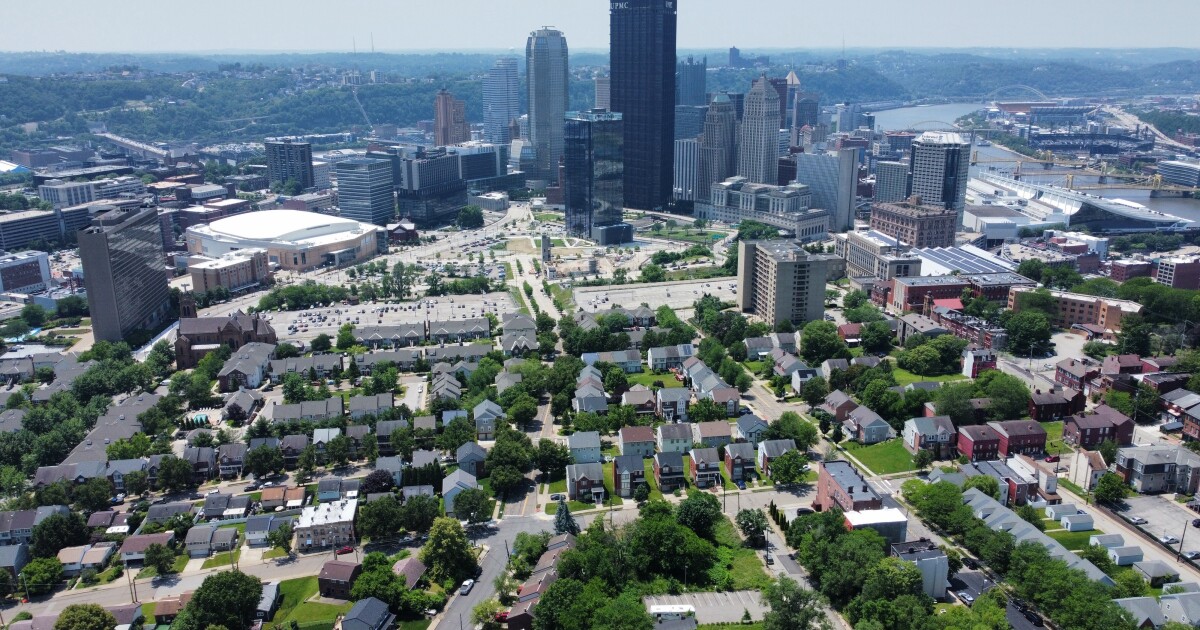The Pittsburgh Penguins’ reign over development in the Lower Hill District ended Thursday when the organization let their exclusive rights to development on the more than 28 acres of land expire.
Pittsburgh Arena Real Estate Redevelopment (PAR) — a subsidiary of the Pittsburgh Penguins — have held the sole rights to development around the former Civic Arena near their current PPG Paints Arena since 2007. The Urban Redevelopment Authority and the Sports and Exhibition Authority — public development agencies from the City of Pittsburgh and Allegheny County — own the land.
Over the past 18 years, they’ve developed seven of the 28 acres of open lots.
PAR completed the glass-paneled headquarters of First National Bank last February and construction is underway on a new live music venue. The organization has also helped fund projects in the Hill District community, such as restoring the New Granada Theater. Property taxes generated from development in the Lower Hill have gone toward the Greater Hill District Reinvestment Fund. The fund supported a program for home repairs in the neighborhood and is set to provide money for workforce development and education programs.
The Penguins said they’re still interested in the Lower Hill and “will stay engaged in the City’s plans for the area and continue to be a collaborative partner in advancing future development,” according to Jen Bullano Ridgley, chief communications officer for the Penguins.
But for some, the shift in power provides a welcome break. “While this transition marks a significant change in the course of the site’s redevelopment, it also represents an enormous opportunity to move beyond the barriers that have hindered truly equitable progress,” said City of Pittsburgh Mayor Ed Gainey and Daniel Lavelle, city councilperson who represents the Hill District, in a joint statement.
For now, the land and its development is under the control of the URA and SEA . The two public agencies “will continue to engage their respective boards of directors to evaluate future redevelopment options that include a transparent public process,” according to a statement from the agencies.
The next steps could be a renewed opportunity for economic development that works with the Hill District community, according to Gainey and Lavelle.
“We must commit to redevelopment that not only honors Pittsburgh’s African American cultural legacy, but actively repairs the historic harm done to the Black community,” Gainey and Lavelle said. “That means rejecting gentrification and displacement, ensuring shared economic opportunity, and centering equity at every decision point. This is our chance to set a new, uncompromising standard for what just and inclusive development must look like.”

